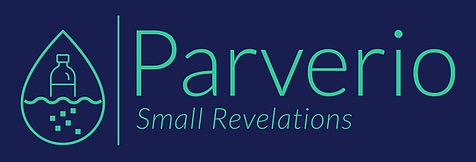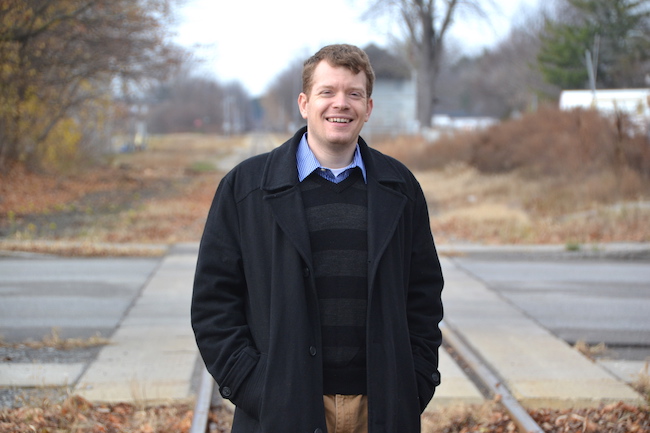Albion grad starts company, leads research detecting microplastics in water
ALBION – Greg Madejski wants to address what he believes could be an emerging public health threat.
The Albion native, 32, has a Ph.D. in biomedical engineering from the University of Rochester, where he remains a visiting nano-scale scientist.
Madejski uses electron microscopes to study particles not visible to the naked eye. They may be tiny, but Madejski said the minuscule matter has an impact, and can be dangerous to humans.
Madejski is CEO and founder of a new company, Parverio, that is making the study of microplastics in tap water its focus. Madejski’s brother, Giovanni, is an engineer with the company. Giovanni is 28 and graduated from Albion in 2010.

The logo for the new company reflects how the study of tiny particles in water is its focus.
They have launched a Kickstarter campaign, seeking $40,000 to do an atlas of the microplastics in Western New York’s drinking water. (Click here to see the campaign.)
They want to take samples and study the content of tap water throughout the region, including different municipal water systems and people who use their own wells.
“We want to make an atlas of all the tiny debris in water through Western New York,” Madejski said. “We’re looking to identify all of the small particles. Right now, we’re not sure if they are harmful or not.”
Madejski said a catalogue of what’s in the water will be a good starting point in addressing the issue. Parverio, the company led by the brothers, wants to develop posters and a database that show the presence of the microplastics in water.
Parverio has developed kits with tiny filters. The water drains straight through, but the filters catch the microplastics. Parverio can they stain those tiny particles to identify what they are and count them.
“It’s very manually intensive to do,” Madejski said.
Parverio is looking to study 300 samples of tap water across WNY. They want to take samples in February and March, and then expect it will take two months to do the analysis and build the database.
Madejski decided to give the public a chance to help fund the project, to send a message to potential investors “there is appetite for this product and information. Ultimately in the long run it can do a lot of good.”
If the WNY project proves successful, Madejski said the company will look to scale up the project and take it nationwide.
He worries about the presence of microplastics in the water. Madejski said plastic bottles, grocery bags, lids on to-go coffee cups, and other plastic containers have become ubiquitous in the environment.
Those plastic items break down when exposed to heat and light, and many of the tiny particles gradually seep into the water supply. People don’t see the very small plastics, which Madejski said “are like a thin layer of dust that can be found everywhere.”
He hopes the research will motivate people to use less plastics, and take better care of keeping them out of the environment.
“Filtering the water and studying microplastics is one part of the solution,” Madejski said. “Plastics will be with us for a while. We need to find a way to keep them out of the environment in the first place.”
The name of the company, Parverio, is a combination of two Latin words. Madejski took the subject from Latin teacher Irene Henion when he was at Albion.
“Parvus” is Latin for small, and “aperio” is the word to reveal.
For more on Parverio, click here.








































































